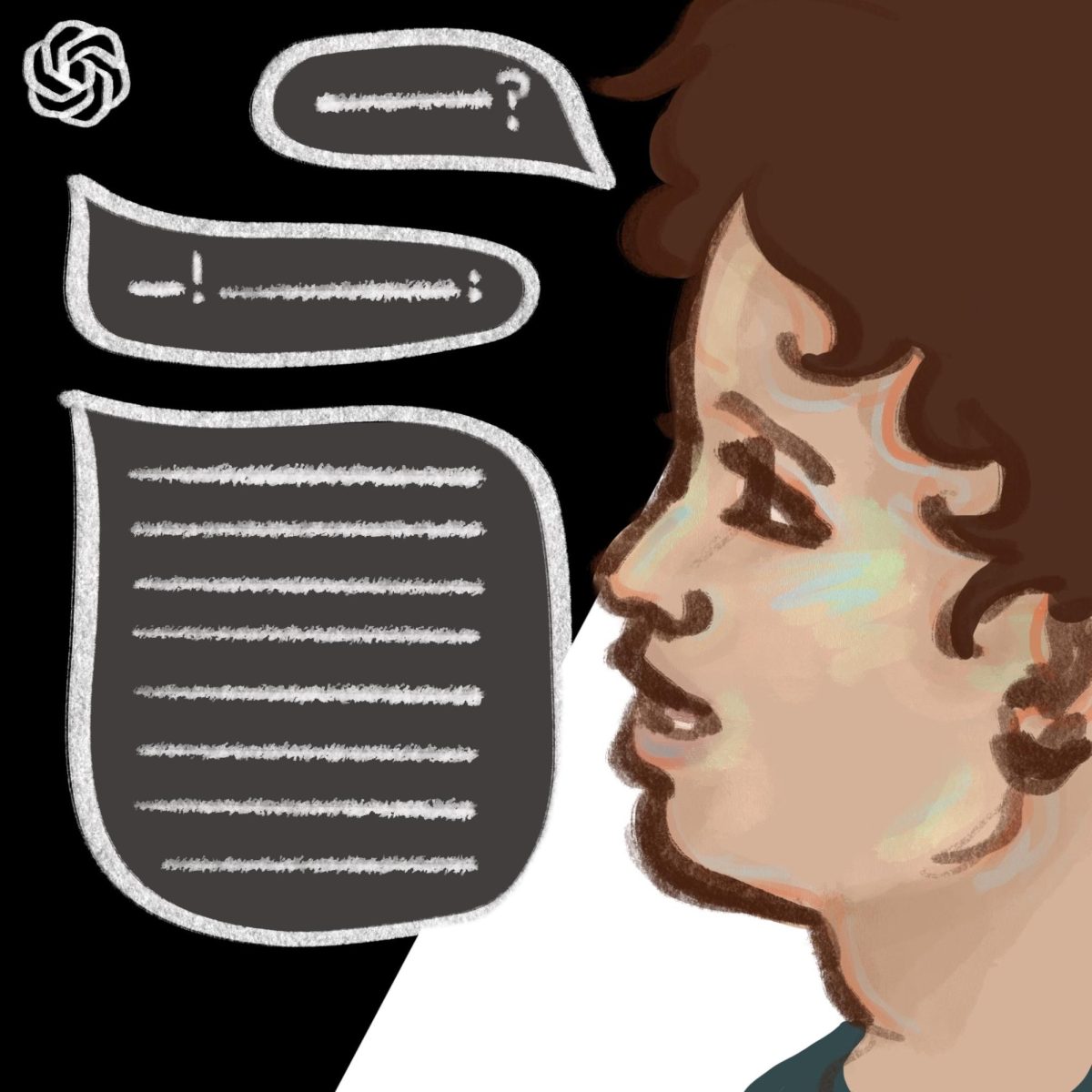
Maya Gest '26
You’ve seen it everywhere. It’s in every headline, across every news source, in countless discussions and casual conversations: artificial intelligence.
There is no doubt that AI is transformative as an educational tool. You will never meet a person that can go as in-depth, repeatedly, with any concept, as AI can. It can boost your productivity by miles, create flashcards and practice problems in seconds, and break down complex topics into simple, digestible explanations, expanding as a student’s understanding grows. When used correctly, AI can allow learners to dig deeply into concepts and ensure thorough understanding of any subject.
There are many concerns, though, when it comes to AI tutoring.
Most importantly is the idea that students will begin to rely too heavily on readily accessible answers and explanations, rather than struggling through the mental strain that often accompanies learning, producing shallow thinkers.
Take the dual process theory for example.
The dual process theory describes interactions between intuitive and deliberate thinking in two systems. System one is said to be unconscious, error prone, based on mental shortcuts, and impulsive—“thinking fast”. System two is said to be deliberate, conscious, controlled, emotionally neutral, requiring extensive effort—“thinking slow”. AI often, when used incorrectly, shortcuts slow thinking, making it harder to access and work through.
Another is the concern of cheating, or academic dishonesty, the more indiscernible AI generated material gets from raw human work. There’s also a lack of transparency on how the AI gets its answers or its conclusions, and the need for students to be very considerate and skeptical of its responses.
Of all of these concerns, the most glaring one goes along with the idea that human connection is the core of education. Emotion is an enormous multiplier for learning and memorization.
Think of the good teachers you’ve had in your life—maybe even your favorite one, one that transformed the subject and awed and inspired you each day. Or maybe just made class bearable enough that you were able to show up wanting to do the best that you could. A teacher that cared how your day was going, could pick up on your emotions, or your background, or you as a learner, and accommodate that.
Think of the traits that make them this way: passion, compassion, humor, connection. Now try imagining AI creating the same experience. For now, although I’m sure I may be proven wrong, it is impossible.
On top of that, engagement and encouragement from peers and teachers remains one of the best motivators for any learner, regardless of how accessible and retainable class material is. There is a real and priceless value in human connection, and it’s the reason why we continue to gather together in community in order to learn despite the growing accessibility of homeschooling or self-teaching. That’s not to say AI is not an incredible and helpful tool when used critically—it just means that we must be cautious before making grand claims of a fully artificial classroom in the near future, and hold our teachers under an immense sense of gratitude.
Overall, AI is just like any other tool—although arguably one of the most powerful— with the capability to enhance and enrich a student’s ability, or to be misused. I doubt that with what it’s shown up to be now that it will ever starkly replace the classrooms we know today, but with how rapidly the landscape is changing, we might just have to wait and see.